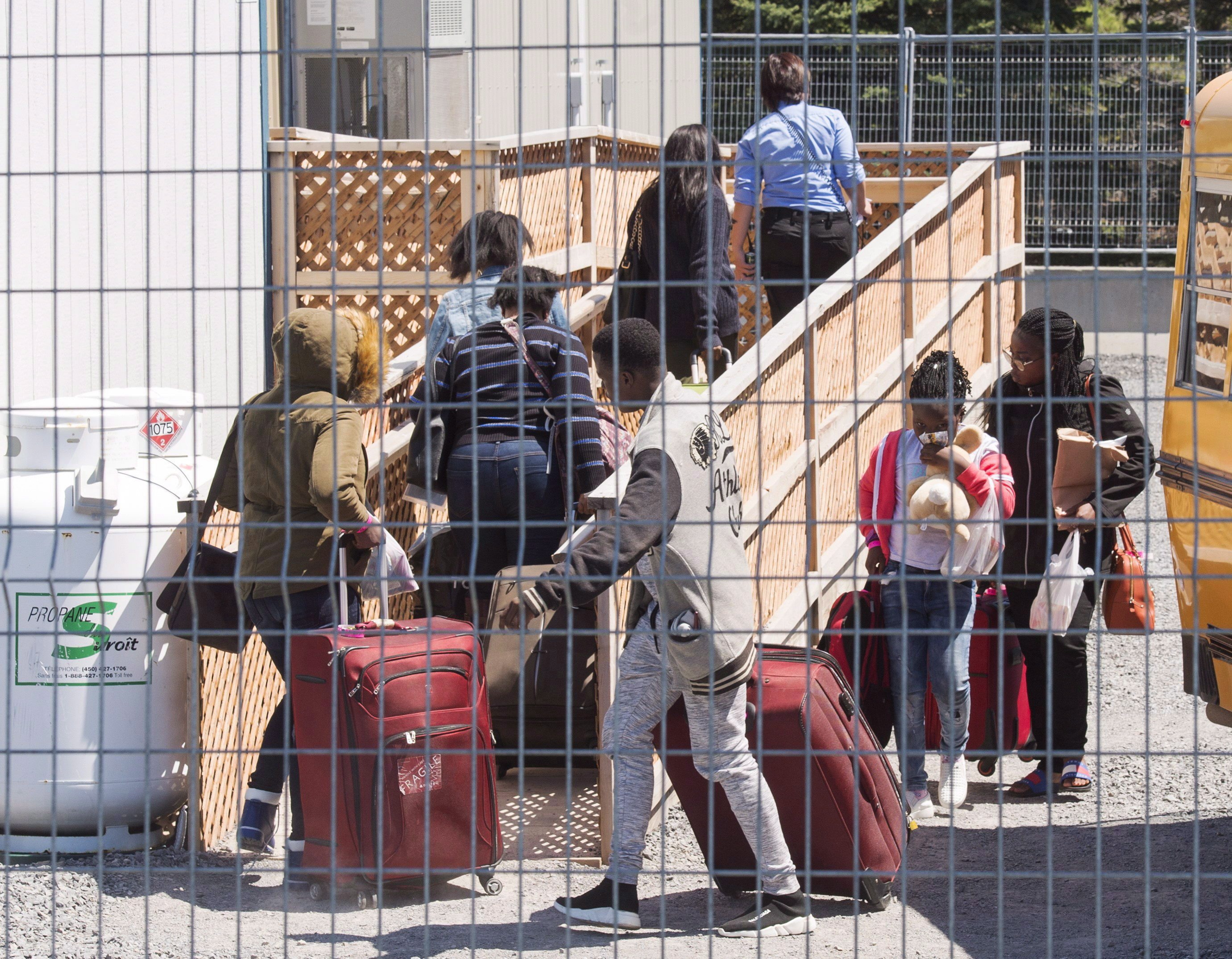Tough in Toronto?
"It's so tough trying to find an apartment in Toronto. There are so many people looking. For each apartment, you have twenty applicants competing."
"Some people think that we come here to take money from your government. That's just not the case. We don't want to take up the shelter space. We don't want to be on assistance."
"We would like to be on our own as soon as possible."
"We felt settled in Toronto right away except that we are still waiting for our refugee hearing."
Adenike, 38, Nigerian, illegal Canada-U.S. border crosser
"We didn't want to leave our home, but we have three girls and their well-being is more important than anything else."
Afolabi, 46, Nigerian, illegal border crosser
"Two years ago, we could help clients find a one-bedroom apartment between $900 and $1,050."
Mario Calla, executive director, COSTI Immigrant Services
"Honestly, many people on the ground don't even know the difference between refugees and immigrants."
"This language of illegality and criminality is concerning."
Debbie Douglas, Ontario Council of Agencies Serving Immigrants
 |
| Thousands of migrants have crossed into Canada at Roxham Road, which straddles the Quebec-New York border, in recent months. (Ryan Remiorz/Canadian Press) |
Simple enough; immigrants are those people who decide to emigrate from their countries of origin for whatever reason, and from outside the country they wish to access, they make application to immigrate to the chosen country. And they wait for the bureaucracy involved to review their application, interview them, check security issues, and reach the critical decision. This represents the universally legal avenue to immigration.
Refugees are those people who are displaced outside their country of origin for reasons linked usually to persecution, threats of violence, internal and/or external conflict situations. The United Nations confers the status of refugee upon them and generally acts as brokers on their behalf, urging member-nations with no issues of their own to disrupt law and order and security to consider absorbing refugees into their population. And Canada has been alert to the global situation of increasing refugee numbers and responded accordingly.
Those people, like the Nigerian family with four young children who crossed from the U.S. into Canada in January to declare themselves refugees, are illegal entrants to Canada; they deliberately entered Canada at a unrecognized crossing, bypassing notice that this is illegal, having planned to steer clear of appearing before a legal Canadian entry point to declare one's status because they are aware that by so doing, having accessed a country of safe haven (the U.S.) first, Canada would refuse.
The entry to Canada of tens of thousands of economic migrants and haven seekers from countries that do not normally produce refugees and who have deliberately bypassed legal entry is costly and strains the country's immigration and refugee systems along with social welfare systems whose purpose is to support the welfare of Canadians in distress. Deciding to bypass normal entry regulations ties up Canada's workforce tasked with dealing with the lengthy application process and review.
This family claims they had no option but to take their children out of Nigeria for fear that their daughters would be forced to undergo genital circumcision. Since February they have been living in temporary shelters in Toronto, but plan to find employment while their four children attend school as they await the outcome of their application for refugee status. Nigeria is the largest of the African countries, and the wealthiest. It is divided by Christian and Muslim populations. If they lived in the Muslim half they could have moved to the Christian half where female genital mutilation is moot.
They applied instead, for a visa to visit the U.S. with the direct purpose of transiting the U.S. into Canada, walking over the border at Lacolle, Quebec in late January, remaining for a month in a Montreal shelter before moving to Toronto. Why Toronto? Why not some town or village in Ontario or anywhere else in the country? Why Canada to begin with? Why not stay in their country of birth and if change is needed, be a part of it. To declare themselves refugees is bogus; they are illegal entrants, opportunists who have no respect for another country's laws.
The Angus Reid poll that came out this week with its finding that 67 percent of Canadians feel the current situation of people walking across the border from the U.S. into Canada is untenable tells the story of a population feeling defrauded. Canada is capable of making its own decisions over who it will welcome to live in the country based on its own criteria of adding value to Canada's future. So far, the first six months of this year the RCMP has intercepted 10,744 asylum seekers, illegal migrants outside of official ports of entry.
If Nigerian illegal entrants find it tough to secure affordable living arrangements in Toronto, how about Torontonians looking for shelter and finding the going tough with added competition? There are more than enough Canadians living hand-to-mouth in miserable conditions for whom the welfare system is meant to provide a measure of relief, those same people who long for a decent place to live for themselves and their families. There comes a point when enough is enough...
 |
| Asylum seekers steps away from Canada listen as the RCMP tells them they will be arrested as they cross over from New York state, north of Plattsburgh. (Susan Ormiston/CBC) |
Labels: Canada, Illegals, Migrants, Nigeria, Social Welfare, United States
0 Comments:
Post a Comment
<< Home